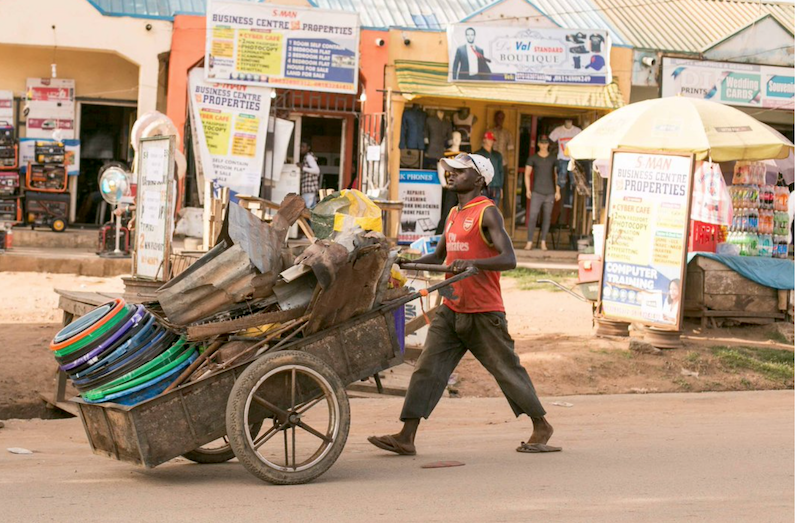By Bakare Ayomide
The term “hustle” is a norm in today’s society. It serves as a means to survive and thrive, in spite of the devastating economy, with people trying to provide whilst sacrificing their dreams, their pride, and their social time to make a dime. This demeaning lifestyle has pulled the drive of the youths to not aspire for what they desire, but rather veer towards becoming a mogul of a societal compelled empire, as such this deadly virus has made its victims of this virus lose touch of their true self in pursuit of the society’s unhealthy view of success.
Hustle culture, in its simplest term, is seen as centred on hard work for a long period of time and sacrificing one’s social life and self-care in order to succeed. It is mostly spread through social media: “Young people are millionaires,” “money can get you power and recognition,” “it is the only way one can be happier and more comfortable,” “it is completely worth it.”
Social media has found a way to make hustle the only medication for life’s issues. On social media apps such as TikTok and YouTube, there are over a million searches on “side hustle,” and most of the content created does not teach one to make money but remains another form of hustle, creating a vicious cycle. But how did this cycle really begin?
Using Nigerian homes as a primary example, the family is the first agent of socialisation and the place where the cycle of hustle culture is bred. It is a fact that most Nigerian parents compare their children to other children, and it is for this reason that as they begin to socialise among classmates and friends, comparison begins.
Comparison enters their minds, and it becomes a pacemaker, a sort of symbiotic drug that constantly takes more than it gives. It is from that stage that they become insecure individuals whose only form of reward was through gifts for being the smartest, the neatest, and the absolute best, up until their workplace, where rewards are given to the ones who work the hardest. The individuals aware of this cycle create a hustle to benefit from it, and the ones who are unaware are unfortunately left prioritising long hours for their success.
There must be a curiousity that lingers; perhaps one might wonder, “How does working hard not breed success?” It is an excellent question, and the truth is one must work hard to become successful but not to the point it becomes an upmost priority to the person’s health. It is known that “health is wealth.” Therefore, when a person gains money but loses their health, surely that person becomes a vacuum for their own money. Yet hustle culture heavily chains down an individual’s mind, causing guilt, shame, and anxiety because there is an overwhelming sense of unfulfillment that weakens the identity of that individual.
For example, young people who are unemployed or receiving a small amount of pocket money feel an overwhelming obligation to improve themselves. There’s an impatience and a constant feeling that they are wasting time when they have not discovered their own identities. Family and friends have now become unimportant, and success is the greatest milestone. It also allows for toxic positivity—the act of remaining positive no matter how dire a situation might become.
Moreover, hustle culture significantly drains an individual physically; the list begins with fatigue and insomnia, leading to high blood pressure, heart attacks, strokes, and tension headaches, and continues until there is nothing left to give to the hustle.
If we look at Nigeria today, the youths have become apathetic towards political activity and their education since what matters most is to become successful because success breeds respect, respect breeds power, and power is everything. It’s a vicious cycle, to be sure!
The question that remains is: how must one avoid hustle culture? After all, it is a deadly virus. The most important thing a person can do is define their version of success. Society has defined too many versions of success in different aspects of an individual’s life. There must be something more important to you than putting in a huge amount of time working hard.
Another solution is to set boundaries. “One must work hard,” which is true, but there is an allocated time for everything. Create a working schedule that does not completely ruin the way you behave towards others; be ready to say “no” to particular things that feel like obligations; and work at the time you know you can put in the most.
There is also an option to rest. Create time to reset; it is the only way one can perform at their best. Burning out will only lead to the sacrifices being made going nowhere.An individual should also be ready to ask for help; besides, it is taught that one should not bite off more than they can chew. Asking for help goes a long way against taking on several responsibilities that will, in the end, leave one incredibly stressed.
Finally, focus on your priorities. When priorities are defined, one will find themselves achieving most of their goals in an easier and healthier manner. It allows one to make proper time for multiple tasks they hope to complete without getting burned out.
Ultimately, hustle culture is a black hole; it viciously takes everything that comes next to it until there is nothing but mental, social, and health issues. It takes away one’s identity and replaces it with success, which remains cancerous to the world in the end. One must remember that “Rome was not built in a day.” Success requires patience, and there is no hustle that comes with patience.
Making proper decisions about how one may impact others and knowing that there was something other than success experienced allows an individual to become their entire selves. No matter the situation, do not give into hustle culture. By prioritising self-care and being healthy, success can become attainable.




